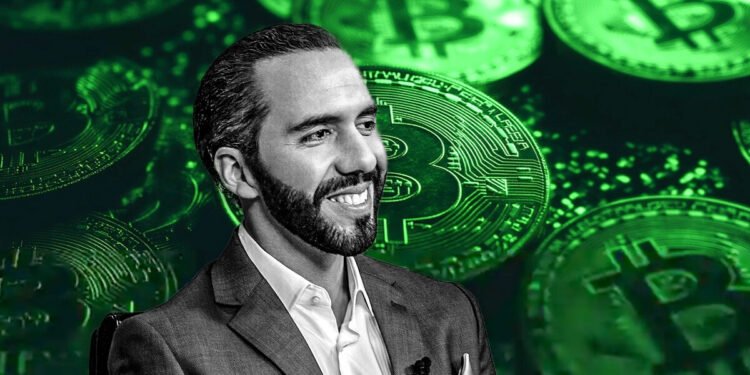El Salvador’s Firm Stance on Bitcoin Acquisition Despite IMF Deal
President Nayib Bukele of El Salvador has recently reiterated the country’s unwavering commitment to acquiring Bitcoin, even in the face of its ongoing agreement with the International Monetary Fund (IMF). Bukele’s message, delivered on March 5, underscores El Salvador’s resolute stance on Bitcoin investments amidst increasing external pressures.
Insights Into El Salvador’s Bitcoin Position
Bukele outright dismissed speculations about halting Bitcoin acquisitions, affirming, “Our Bitcoin purchases will continue. They didn’t stop when the world isolated us and most ‘bitcoiners’ turned away; they won’t stop now or in the future.” Subsequent to this statement, El Salvador’s National Bitcoin Office disclosed a new Bitcoin purchase, elevating the country’s holdings to 6,101 BTC, valued at around $530 million at the time of announcement.
Market Context and IMF Restrictions
The disclosure by Bukele unfolds amid El Salvador’s recent discussions with the IMF, which advocate for a more cautious approach to Bitcoin transactions. The IMF has outlined requirements for El Salvador to enforce stricter regulations regarding digital assets, a condition tied to a $1.4 billion financial assistance package. Under this agreement, the government must refrain from discretionary Bitcoin purchases, including those from mining activities. Acquired Bitcoin must be allocated only for legal enforcement purposes, such as seizures.
This pact necessitates the elimination of mandates obligating businesses to accept Bitcoin and the cessation of tax payments using the cryptocurrency, signaling a shift in the nation’s previous Bitcoin-focused economic strategy.
Potential Ramifications of El Salvador’s Bitcoin Stance
The response within the crypto community to Bukele’s resolute position on Bitcoin has been varied. Industry figures such as Samson Mow, CEO of JAN3, have urged for clarity on how El Salvador intends to reconcile its Bitcoin initiatives with the new IMF directives. Meanwhile, John Carvalho, CEO of Synonym, has emphasized the importance of a clear plan, questioning, “The IMF’s recent updates seem to directly contradict your actions, given that you have agreed to the terms. What is your strategy going forward?”
In contrast, critics of the government’s strategy have highlighted the risks associated with bypassing IMF constraints. Stacey Herbert, director of the National Bitcoin Office, has vehemently defended the government’s dedication to Bitcoin, expressing confidence in its decisions over the IMF’s directives.
Conclusion: Navigating El Salvador’s Bitcoin Course
In conclusion, El Salvador’s stance on Bitcoin remains steadfast in spite of the limitations imposed by its arrangement with the IMF. While President Bukele’s advocacy for Bitcoin attracts both support and scrutiny, the repercussions of adhering to or potentially sidelining IMF demands pose critical considerations. The delicate balance between upholding Bitcoin investments and complying with international financial commitments will be key in shaping El Salvador’s economic trajectory and its role in the global cryptocurrency domain.








